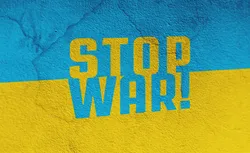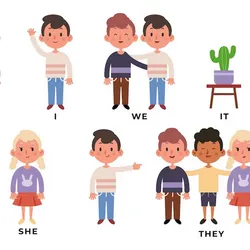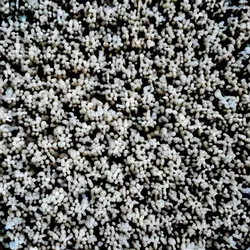
Level 1:
The International Criminal Court (ICC) has issued an arrest warrant for Russian President Vladimir Putin for alleged war crimes committed during Russia’s invasion of Ukraine. Putin is accused of illegally deporting Ukrainian children into Russia. Maria Lvova-Belova, Russia’s commissioner for children’s rights, was also charged. The ICC’s decision is significant as it is the first time the court has issued a warrant against a leader of one of the UN Security Council’s five permanent members. If Putin travels to a cooperating country, he risks arrest. Russia does not recognize the International Criminal Court.
Level 2:
The International Criminal Court (ICC) has issued an arrest warrant for Russian President Vladimir Putin. The charges relate to allegations of war crimes during Russia’s invasion of Ukraine. The specific accusation is that Putin illegally deported Ukrainian children into Russia. Maria Lvova-Belova, Russia’s commissioner for children’s rights, was also charged. This is the first time that the ICC has issued an arrest warrant for a leader of a permanent member of the United Nations Security Council. The move means that Putin could be arrested if he travels to countries that work with the ICC. Russia does not accept the ICC’s jurisdiction.
Full Story:
The International Criminal Court (ICC) issued an arrest warrant on Friday for Russian President Vladimir Putin, making him only the third sitting president to face such a warrant. The charges stem from alleged war crimes committed during Russia’s invasion of Ukraine, specifically the illegal deportation of Ukrainian children into Russia.
The ICC charged Putin with a serious crime against humanity, and issued an arrest warrant for Maria Lvova-Belova, Russia’s commissioner for children’s rights. A recent Yale research project identified 6,000 Ukrainian children held in Russia or Russia-controlled areas of Ukraine since the invasion.
While the move is mostly symbolic, it has significant ramifications. If Putin travels to a country that cooperates with the ICC, he will be arrested. The International Criminal Court cannot try defendants in their absence, and Russia is not about to hand over anyone, let alone Putin. Moscow does not even recognize the International Criminal Court.
”This makes Putin a pariah,” says Stephen Rapp, a former ambassador-at-large for war crimes under President Obama. “He risks arrest if he travels. This will never go away. Russia will face sanctions unless it complies with the warrants.”
The ICC’s decision is the first time the court has issued a warrant against the leader of one of the UN Security Council’s five permanent members. “So Putin might go to China, Syria, Iran, his…few allies, but he just won’t travel to the rest of the world and won’t travel to ICC member states who he believes would actually…arrest him,” says Adil Ahmad Haque, a Rutgers law professor who specializes in international law.
While a trial appears unlikely, the move is significant because it places Putin in rare, if unwelcome, company with Sudan’s Omar al-Bashir and Libya’s Muammar Gaddafi, both of whom were subject to ICC arrest warrants during their respective presidencies. The ICC’s decision will undoubtedly have an impact on Russia’s international relations, and it remains to be seen how Putin will respond to the warrant.
Questions:
Who did the International Criminal Court issue an arrest warrant for, and what are the charges?
How many Ukrainian children were identified in a recent Yale research project?
What is the significance of this move by the ICC against Putin?
Do you think this warrant will have any impact on Russia’s international relations?
In your opinion, is it fair for the ICC to issue an arrest warrant for a sitting president of a country?
Fill In the Blanks:
sanctions, pariah
”This makes Putin a ________,” says Stephen Rapp, a former ambassador-at-large for war crimes under President Obama.
Russia will face ________ unless it complies with the warrants.”
The ICC’s decision is the first time the court has issued a warrant against the leader of one of the UN Security Council’s five permanent members.
Difficult Words:
Allegations - unproven claims or accusations, claims made without proof
Jurisdiction - the power or authority to make legal decisions, control over an area or people
Permanent member - a member who has a fixed, long-term position, usually with certain privileges or responsibilities, like being on a council or committee
Pariah - a person or country who is rejected by others, someone who is seen as an outcast or an outsider
Sanctions - penalties or measures taken against a person or country, often in response to breaking laws or international norms




